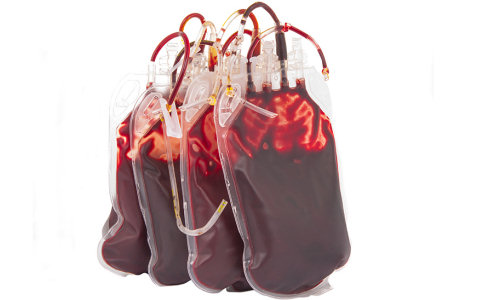Wellcome Trust-funded stem cell research has produced red blood cells fit for transfusion into humans, paving the way for the mass production of blood
Photo Credit: Gizmodo
The £5 million Strategic Award was granted to a consortium led by the Scottish National Blood Service (SNBTS) and will follow on from previous research which proved red blood cells could be generated from stem cells.
The consortium will be using pluripotent stem cells which are able to form any other cell in the body. The team will guide these cells in the lab to multiply and become fresh red blood cells for use in humans with the hope of making the process scalable for manufacture on a commercial scale. The team hopes to start the first in-man trial by late 2016.
Researchers from Bristol University’s School of Cellular and Molecular Medicine have developed a model to assess the effectiveness of the cultured red blood cells, determining whether they mature into fully functional blood cells.
And colleagues from the School of Biochemistry will be looking at the differences in protein profiles of the red blood cells developed in vitro and normal adult blood cells.
Leading the work taking place in Bristol is Professor David Anstee, Dr Allison Blair and Dr Jan Frayne.
Blood transfusions play a critical role in current clinical practice, with over 90 million red blood cell transfusions taking place each year world-wide.
Transfusions are currently made possible by blood donation programmes, but supplies are insufficient in many countries globally. Blood donations also bring a range of challenges with them including the risk of transmitting infections, the potential for incompatibility with the recipient’s immune system and overloading of iron levels.
The use of cultured red blood cells in transfusions could avoid these risks and provide fresh, younger, cells which may have a clinical advantage by surviving longer and performing better.
Professor Marc Turner, medical director at the Scottish National Blood Transfusion Service, is heading up the project at the University of Edinburgh.
He said: “Producing a cellular therapy which is of the scale, quality and safety required for human clinical trials is a very significant challenge, but if we can achieve success with this first in-man clinical study it will be an important step forward to enable populations all over the world to benefit from blood transfusions. These developments will also provide information of value to other researchers working on the development of cellular therapies.”
Dr Ted Bianco, Director of Technology Transfer at the Wellcome Trust, said: “Harnessing the power of stem cell biology to contribute to healthcare is one of the most exciting opportunities we can expect to see reach fruition in the coming years. But one should not underestimate the challenge of translating the science into routine procedures for the clinic. Nowhere is this more apparent than in the challenge Professor Turner and colleagues have set out to address, which is to replace the human blood donor as the source of supply for life-saving transfusions, knowing that each unit of blood contains no less than a trillion red cells.”
Story Source:
The above story is based on materials provided by University of Bristol.





